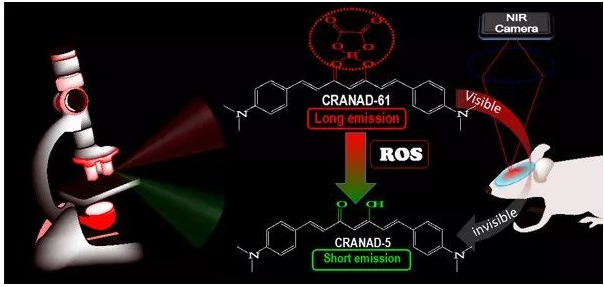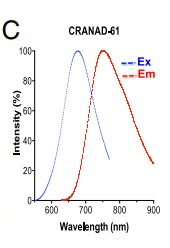Name: CRANAD-61
Raw material: oxalate curcumin derivative excitation/emission wavelength: 675/760nm Application: ROS detection
Storage condition: -4℃
Other notes: Shelf life of half A year under seal [Main advantage] The molecular probe can not only detect ROS concentration in the brain at a macro level, but also detect ROS concentration around Aβ plaques at a microscopic level through two-photon imaging. CRANAD-61 reacts with ROS in AD's brain to cause A blue shift in the spectrum, which is a "visible" to "invisible" shift in overall animal imaging and can be used to identify "active" Aβ plaques in two-photon imaging
Title:Oxalate-curcumin based probe for imaging reactive oxygen species at micro- and macro-levels in Alzheimer’s disease
Article link:DOI: 10.1073/pnas.1706248114


| Warm tips: Suzhou Beike nano products are only used for scientific research, not for human body,different batches of products have different specifications and performance |
Message
|
|
 |
Scan code concerns WeChat official account
QQCommunication group:1092348845
|
|
| Warm tips: Suzhou Beike nano products are only used for scientific research, not for human body,different batches of products have different specifications and performance.The website pictures are from the Internet. The pictures are for reference only. Please take the real object as the standard. In case of infringement, please contact us to delete them immediately. |